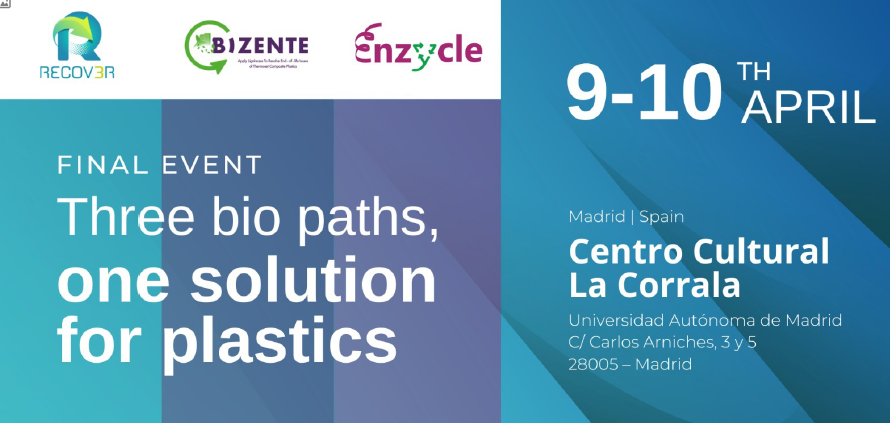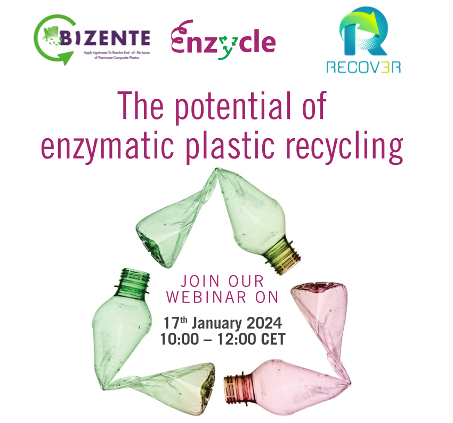EDITORIAL – Frontiers in Microbiology : Development of plastic-degrading microbial consortia by induced selection in microcosms
Plastics are synthetic polymers derived from petroleum that have displaced natural products due to their intrinsic properties, such as durability and versatility; properties that make them ideal materials for use in various industrial sectors, mainly focused on food and agriculture.
As a consequence, their use has increased exponentially, reaching 370 million tonnes per year in Europe in 2016 and with a forecast of 800 million tonnes per year by 2040.
This high production results in the generation of large quantities of plastic waste that is highly resistant to biodegradation, mainly due to its molecular structure, consisting of long carbon chains.
Pollution by microplastics and filmed plastics is increasingly problematic due to their small size, which allows them to be easily ingested by a wide range of organisms and their subsequent accumulation in food chains. The scarcity of effective methods to recycle plastics means that this type of waste accumulates in large quantities in the environment, which is an emerging concern for human health and natural ecosystems.
At the ecosystem level, plastic pollution causes numerous negative effects such as harm to animals; absorption of toxic chemicals and pollutants from the environment, which can be transferred to the organisms that consume them, causing various health problems and even death or alteration of habitats and disruption of natural ecosystems, all of which highlight the urgent need to address the serious problem of plastic pollution and its far-reaching environmental, ecosystem and health consequences.
The heterogeneous and multi-laminated composition of most plastics is responsible for the fact that most recycling processes are considered to be of low efficiency in the absence of mechanochemical treatments that allow optimal reuse, hence the need to investigate new sustainable strategies to reduce this type of pollution; i.e. to search for new biological tools that allow the efficient degradation and/or transformation of plastic resources, thus eliminating their harmful accumulation in the environment.
Based on recent work, the use of microbial consortia can contribute to improve the performance of plastic biodegradation. Thus, the novelty of one of Recover’s lines of work lies in obtaining microbial consortia with the potential to biodegrade a scarcely studied plastic such as linear low density polyethylene (LLDPE) from an artificially contaminated microcosm – a soil sample in which LLDPE was buried -, thus inducing a selective pressure and proliferation of plastic-degrading microorganisms.
While other plastics such as polyethylene terephthalate have been extensively studied as they contain functional groups that facilitate their biodegradation, there is a notable lack of knowledge about the biodegradation of plastics with a more crystalline molecular structure such as polyethylene.
Our work has focused on selecting and characterising a stable plastic-degrading microbial consortium by induced and sequential enrichment from microcosms of plastic-contaminated soil. In parallel, the efficiency of plastic degradation by the consortium members will also be verified, as well as their molecular identification and enzyme profiles related to the degradation of recalcitrant plastics.
The strategy used in this work for the selection of natural consortia, including plastic-contaminated microcosms, followed by selective enrichment, has allowed to obtain stable consortia with the capacity to degrade LLDPE. Thus, a sequential and selective enrichment protocol from an artificially contaminated microcosm has been proposed as an excellent technique to obtain stable microbial consortia able to grow at the expense of LLDPE in film or powder form.
Finally, we would like to highlight that the results have shown that plastic powder facilitates microbial growth compared to its use in film form.









There are no comments